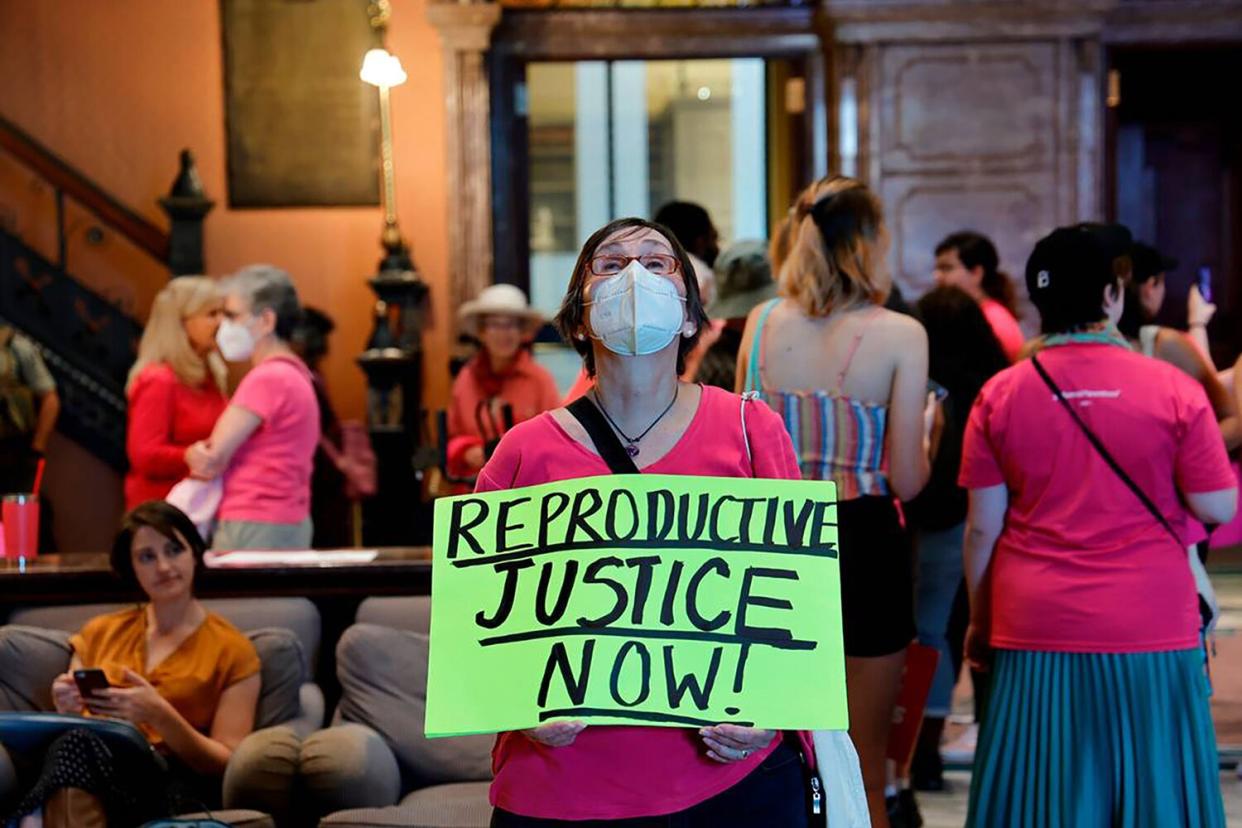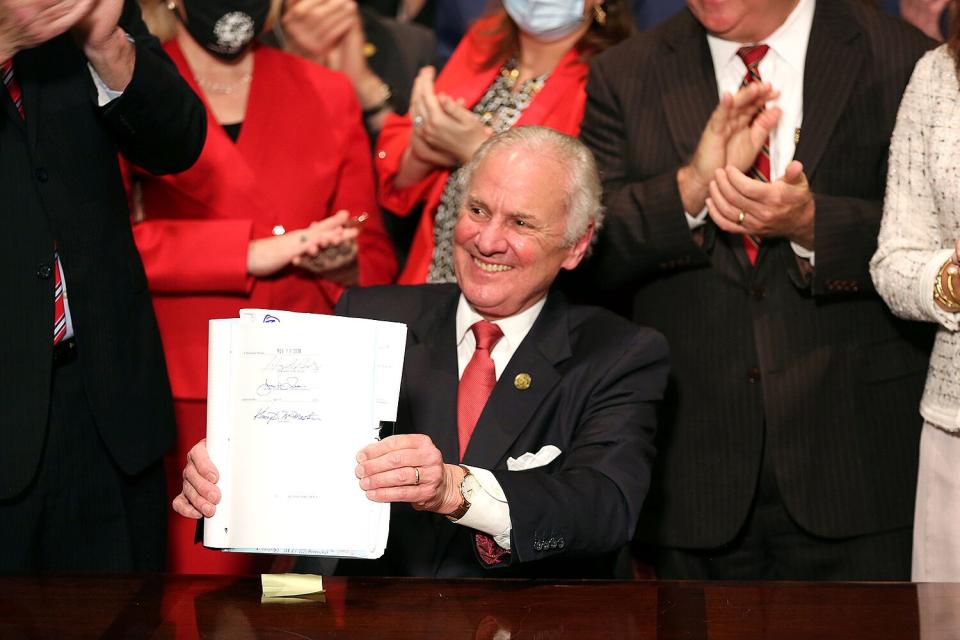South Carolina Supreme Court Overturns 6-Week Abortion Ban

Tracy Glantz/The State/Tribune News Service via Getty
The South Carolina Supreme Court has overturned the state's ban on abortions after roughly six weeks of pregnancy, claiming it violates the state's constitution.
The 2021 law, which banned abortions after fetal cardiac activity is detected — typically after six weeks, and sometimes as early as four weeks into a pregnancy — was found in a 3-2 ruling to have violated a patient's right to privacy.
"We hold that the decision to terminate a pregnancy rests upon the utmost personal and private considerations imaginable, and implicates a woman's right to privacy," Justice Kaye Hearn wrote in the majority opinion, per ABC News. "While this right is not absolute and must be balanced against the State's interest in protecting unborn life, this Act, which severely limits — and in many instances completely forecloses — abortion, is an unreasonable restriction upon a woman's right to privacy."

Jeffrey Collins/AP/Shutterstock
Chief Justice Donald Beatty and Justice John Few were also part of the majority ruling, in which Hearn wrote that six weeks was not a "reasonable period of time" for someone to "determine she is pregnant and to take reasonable steps to terminate that pregnancy." Those who voted to uphold the ban argued that the right to privacy was only applicable for searches and seizures.
Jenny Black, president and CEO of Planned Parenthood South Atlantic shared in a statement that the ruling was a "monumental victory" following the six-week abortion ban, which took effect on June 27 after the U.S. Supreme Court overturned Roe v. Wade.
"Planned Parenthood South Atlantic and our partners will continue our fight to block any bill that allows politicians to interfere in people's private health care decisions," Black wrote.
Never miss a story — sign up for PEOPLE's free daily newsletter to stay up-to-date on the best of what PEOPLE has to offer, from juicy celebrity news to compelling human interest stories.
South Carolina Governor Henry McMaster, who signed the initial abortion ban, accused the court of having "exceeded its authority" in a tweet following the ruling. "Our State Supreme Court has found a right in our Constitution which was never intended by the people of South Carolina," he tweeted.
"With this opinion, the Court has clearly exceeded its authority. The people have spoken through their elected representatives multiple times on this issue... I look forward to working with the General Assembly to correct this error."
Our State Supreme Court has found a right in our Constitution which was never intended by the people of South Carolina. With this opinion, the Court has clearly exceeded its authority. The people have spoken through their elected representatives multiple times on this issue. https://t.co/TNt5hajfH7
— Gov. Henry McMaster (@henrymcmaster) January 5, 2023
RELATED: See Which States Will Soon Ban Abortions Now That the Supreme Court Has Overturned Roe
The ban itself — which included exceptions for rape, incest, and pregnancies that endangered the mother's life — went into effect (after being suspended by federal courts) when the U.S. Supreme Court officially overturned Roe V. Wade in June. It was then blocked in August by the state Supreme Court, which led to Thursday's ruling.
Justice John Kittredge wrote in a dissent that he'd "honor the policy decision made by the General Assembly," and that the "South Carolina legislature, not this court, should determine matters of policy."
White House press secretary Karine Jean-Pierre later shared on Twitter that the Biden administration is "encouraged by South Carolina's Supreme Court ruling today on the state's extreme and dangerous abortion ban."

